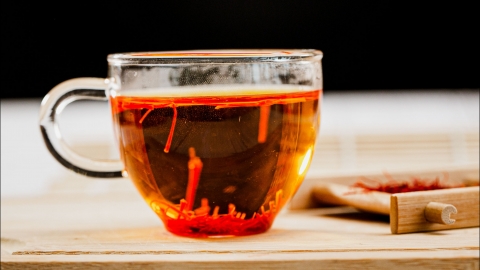Should saffron be steeped in boiling water or warm water?
Under normal circumstances, it is recommended to use warm water rather than boiling water to steep saffron. The detailed explanation is as follows:

Saffron contains active ingredients such as volatile oils and carotenoids, which are sensitive to temperature. Boiling water may destroy the volatile oils, causing the distinctive aroma of saffron to dissipate, and may also alter the structure of components like carotenoids, reducing their nutritional value. Warm water gently extracts the effective components, preserving the aroma and nutrition of saffron while allowing the components to dissolve slowly, resulting in a smoother taste and avoiding discomfort from high-temperature stimulation. Therefore, it is recommended to use warm water for steeping saffron.
When steeping saffron, attention should be paid to the quantity—3 to 5 threads per serving are sufficient, as excessive amounts may increase the body's burden. It is recommended to consume it promptly after steeping to avoid nutrient loss or bacterial growth due to prolonged storage. Additionally, saffron tea should not be consumed by pregnant women, lactating women, or individuals allergic to saffron. If discomfort occurs after consumption, discontinue use immediately and seek medical attention.






